Home Remedies For Wet Cough: 9 Science-Backed Remedies
Know your cough better to determine the treatment you need to take for it.

Image: Shutterstock
A wet cough is a sign of infection, and the phlegm movement during such cough can be discomforting. Luckily, you can manage the symptoms with home remedies for wet cough. These remedies can help speed up recovery and provide relief from persistent coughing. Moreover, wet cough is different from dry cough, and most of the time, people confuse between the two, which delays the recovery rate. Wet cough should be treated differently. Keep reading to learn the underlying causes for wet cough, how it is different from dry cough, and plenty of science-backed home remedies to ease the symptoms. Scroll down.

In This Article
What Is A Wet Cough?
Coughing is your body’s way of clearing out irritants like dust, pollutants, toxins, fluid, or pathogens from your airway. A wet cough, also known as a productive cough, is a condition where the presence of irritants like dust, allergen, smoke, excess mucus, etc. in your airway triggers your coughing reflex and you get phlegm (mucous) in your mouth (1). The mucous membrane lining your respiratory system produces mucus to keep your airways moist and prevent irritants from entering your lungs.
A wet cough may indicate that your body is producing more mucus than usual which is being pushed out of your lungs, throat, nose, or airway. A wet cough may either be acute or chronic (2).
- Acute wet cough typically lasts less than 3 weeks.
- Chronic wet cough may last longer than 8 weeks and 4 weeks in adults and children respectively.
 Quick Tip
Quick TipThere may be a number of possible causes underlying a wet cough. Let us investigate them.
Key Takeaways
- An acute wet cough lasts for 3 weeks, while a chronic wet cough lasts longer than 8 weeks.
- Respiratory infection, bronchiectasis, or congestive heart failure may cause a wet cough.
- Some home remedies to manage a wet cough include taking oral zinc supplements or cough syrup.
- You should consult a doctor if your mucus is yellow or green or you cough with blood.
Wet Cough: Possible Causes
Respiratory Infection
You may develop a wet cough in response to a respiratory infection that your body is trying to fight off. Some common infections that lead to excessive mucus production include common cold or flu, pneumonia, and acute bronchitis. Respiratory infections that lead to a wet cough may also produce other symptoms like (3):
- sore throat
- fatigue
- fever
- chills
- chest and nasal congestion
- runny nose
- body ache
Bronchiectasis
Bronchiectasis is a medical condition affecting the bronchi (or the tubes that carry air to and from the lungs). In this case, the bronchial tubes are widened and scarred due to prolonged inflammation. Thicker walls cause mucus to accumulate in the air passages as the walls are now not strong enough to make mucus move out of the lungs. This triggers a wet cough. In addition, cilia (thin hair-like strands inside bronchi) are destroyed thus worsening the condition. You may notice one or more of the following symptoms accompanying your wet cough if you have bronchiectasis (4):
- breathlessness
- wheezing
- fatigue
- blood or blood-stained mucus with cough
- chest pain
- clubbing of the fingertips
Chronic Obstructive Pulmonary Disease (COPD)
COPD refers to a group of progressive and chronic lung conditions like emphysema, refractory asthma, and chronic bronchitis. COPD may result in damage to the bronchial tubes, bronchioles, or alveoli (tiny air sacs in the lungs) thus producing an obstruction in the airflow from the lungs. A wet cough may be a symptom of COPD with other accompanying symptoms like (5):
- wheezing
- shortness of breath
- tightness in the chest
- frequent coughing with or without sputum
- fatigue/ tiredness
- weight loss (in later stages)
Congestive Heart Failure (CHF)
Congestive heart failure is a condition where the heart finds it difficult to pump blood through the body. A complication of this condition is pulmonary edema, in the case of which, excess fluid collects in the lungs and enters the alveoli. CHF may result in a wet cough among other symptoms like (6), (7):
- pinkish mucus
- wheezing
- shortness of breath
- fatigue
- swelling in the legs or feet
Now that you are familiar with some of the possible causes, let’s see how to get rid of wet cough by following some home remedies.
Home Remedies For Wet Cough
Here is how to stop coughing using natural remedies and simple practices.
Expectorants And Mucolytics
You can get over-the-counter cough syrups that are formulated with an expectorant or a mucolytic to help thin the mucus so that it is easier for you to cough it up. This wet cough remedy works best if you are having trouble clearing out your airways of mucus and feel that you aren’t coughing up enough phlegm. In particular, look for glyceryl guaiacolate ether, otherwise called guaifenesin, as an ingredient in the over-the-counter cough medications. It is the only legal mucolytic ingredient with efficacy supported by research (8).
Salt Water Gargle
your throat and is one of the easiest wet cough remedies you can try. Salt (NaCl) has properties that make it effective against microbes like viruses which are mostly responsible for respiratory tract infections (9). The saltwater may help to reduce the amount of phlegm (mucus) that accumulates at the back of your throat. This in turn can lead to fewer triggers and a reduced frequency of coughs. There are various recipes for a saltwater mix, so pick one that works for you. You can also stir in half a teaspoon of salt in 8 ounces of warm water. Make sure that the water is not too hot when you gargle it.
Oral Zinc Supplements
Try oral zinc supplements or lozenges if you are wondering how to stop a wet cough. Research indicates that zinc, when taken orally, may effectively treat a cold and reduce the severity of its symptoms. However, there need to be further studies to pinpoint its efficacy and understand why zinc seems to work on adults and not work on children. A common side effect of zinc lozenges may be a strange taste in the mouth that many find a little unpleasant (10). However, care should be taken to avoid too much zinc, else it may be toxic.
Honey
Honey is one of the oldest wet cough home remedies. It has anti-microbial and anti-inflammatory properties that help soothe the throat and boost the immune system. A study found that a tablespoon of honey during bedtime reduced the frequency of coughing in children and promoted sleep (11). There is no evidence to suggest that it will not have the same effect on adults. To use honey as a wet cough treatment, eat a tablespoon of honey or stir it into a warm fluid to soothe your throat. Note that honey is not safe for babies under 1 year of age.
Vitamin C
Vitamin C is one of the much-talked-about wet cough home remedies. A review states that vitamin C on average may lower the duration and the severity of symptoms by 23 percent (12). While more studies are required to prove its efficacy, it may help to take vitamin C when you have a cough. Orange, berries, and lemon or lime are good natural sources. An especially popular and classic remedy incorporating Vitamin C that you can try is a concoction of honey and lemon for cough.
Nasal Irrigation Using A Neti Pot
Studies on the effects of nasal irrigation, especially when done with the help of a neti pot, have shown mostly positive outcomes. That’s because this technique of allowing water to flow freely through the nasal and sinus cavity helps to clear out a lot of mucus from the system. It can help not only clear up headaches and nasal congestion but also reduce the frequency and severity of the wet cough. It is important to use a neti pot in the correct technique to avoid a risk of aspiration (9).
Cool Mist Humidifier
Studies suggest that a humidifier may help relieve cough, but further trials are needed to confirm its benefits (13). Breathing in dry air may further irritate an already stressed out mucous membrane and dry up the mucus, so a cool-mist humidifier is preferred (14).
Drink Plenty Of Warm Fluids
The simplest way to help your body expel as much mucus as possible and thus reduce triggers for cough is to drink plenty of lukewarm fluids. Research suggests that drinking warm fluids can increase the speed and volume of mucus expelled through the nose (15).
 Quick Tip
Quick TipEssential Oils
Thyme, clove, and primrose have been studied and found to be effective in the treatment of cold symptoms associated with respiratory tract infections (16). Thyme and primrose have also been studied as a combination therapy for the same and proven to be effective (17). You can inhale the essential oils through a diffuser or inhale them with steam by adding a few drops to a bowl of steaming water.
Some home remedies that may be suitable for adults may not be suitable or effective in babies or toddlers because of the possible difference in underlying causes for the cough.
Wet Cough In A Baby Or Toddler
What causes wet cough in adults is not always what causes it in children, especially those below 15 years of age. The most common reason for a wet cough in infants and toddlers is a viral infection like common colds, croup, acute bronchitis, and influenza. The second most prevalent reason is asthma. Other causes are rare, but may include (18):
- environmental irritants
- whooping cough
- pneumonia
A humidifier may help your child with a cough, especially at night. You can give honey to your child, but you should not give honey to a baby who is younger than 1 year old to avoid the risk of botulism (19).
Some warning signs to look out for when taking care of a child with a wet cough include (18):
- difficulty breathing or shortness of breath
- heaving chest or chest retractions
- malaise
- high fever lasting more than three days
Wet cough home remedies may not be enough to treat a cough that is indicative of an underlying health condition or that develops into a complication. Let’s see when it is important to seek out the help of a medical professional.
When To See A Doctor
You need to let your physician know about your condition if you have any of the following symptoms along with a wet cough (20):
- bad-smelling mucus
- yellow, green, or pink-tinged phlegm
- blood with cough
- swollen legs, ankles, or feet
- a prolonged wet cough
- high fever or chills
When you visit your physician, your wet cough condition will be diagnosed properly before you get any prescription.
Wet Cough Diagnosis
To diagnose the underlying reason behind your wet cough, the doctor might ask you questions about your symptoms and conduct a physical examination. If that is not sufficient, or you have accompanying symptoms like fatigue, high fever, or weight loss, you might be asked to go in for additional tests like (21):
- x-rays of the chest
- tests to check lung function
- blood sample test
- sputum analysis
- pulse oximetry
- blood chemistry test and arterial blood gas test
Understanding how wet coughs are diagnosed can provide valuable insights into effective prevention strategies to reduce their occurrence. Scroll down to know more.
Prevention Strategies For Wet Cough
- Maintaining proper hydration reduces the likelihood of chest congestion via thinned mucus, which is easier to remove.
- One of the most effective ways to prevent wet coughs is to avoid tobacco smoking. This responsible choice can help you steer clear of respiratory tract irritation, a common cause or aggravator of wet coughs, putting you in control of your respiratory health.
- Keeping the atmosphere slightly humid, but not overly damp, helps prevent mucus from drying out and calms irritated airways. This can be achieved through the use of a humidifier or by placing a bowl of water near a heat source to allow for natural evaporation.
- Maintaining proper hand hygiene, which includes frequent washing with soap and water, is a crucial step in reducing the risk of respiratory infections that result in wet coughs.
It is common to get mixed up between dry cough and wet cough. It is important to clearly understand the difference so that you can get an accurate diagnosis.
Dry Cough Vs. Wet Cough
The most distinguishing feature between a dry cough and a wet cough is that a dry cough does not bring up mucus. It most often follows a respiratory tract infection, due to irritation or inflammation of your airways. A dry cough may also be caused due to other reasons including environmental irritants, asthma, GERD (gastroesophageal acid reflux), laryngitis, tonsillitis, and allergies (22).
While wet coughs are generally harmless, the phlegm the body produces to clear away irritants can be unpleasant. It indicates the body is fighting off an infection, and the phlegm resolves on its own within a few weeks. Some common home remedies for phlegm (mucus) like Vitamin C, essential oils, honey, etc., can be effective in alleviating discomfort and soothing the throat. You can follow these remedies to ease your symptoms and relieve your discomfort. These remedies are effective as they feature ingredients with expectorant or antimicrobial properties. They may help clear up nasal congestion and boost the immune system. However, if the condition persists, consult your health care provider to diagnose any underlying medical condition.
Frequently Asked Questions
Does Covid produce a wet cough?
Covid generally produces dry cough as a symptom, but if the infection progresses to pneumonia, it may produce a wet cough.
How should you cover coughs and sneezes?
The recommended way to cover coughs and sneezes is with a bent elbow or a tissue.
How do I know if my cough is serious?
A persistent cough for over three weeks; coughing up blood, wheezing, chest pain along with shortness of breath and unintended weight loss are signals that your cough may be serious. If the symptoms worsen along with a persistent high fever, or if you have a history of smoking or toxin exposure, seek medical attention immediately. While common coughs from colds are normal, these red flags necessitate proper evaluation by a healthcare professional for a timely diagnosis and appropriate intervention.
Watch the following video to discover effective remedies for wet cough. Explore natural and medical treatments, lifestyle changes, and practical tips to alleviate symptoms and promote healing for a quicker recovery and improved respiratory health.
References
Articles on StyleCraze are backed by verified information from peer-reviewed and academic research papers, reputed organizations, research institutions, and medical associations to ensure accuracy and relevance. Read our editorial policy to learn more.
- Cough and Sputum Production
https://www.ncbi.nlm.nih.gov/books/NBK359/ - Recommendations for the management of cough in adults
https://www.ncbi.nlm.nih.gov/labs/pmc/articles/PMC2080754/ - Cough and the common cold
https://pubmed.ncbi.nlm.nih.gov/3057962/ - Diagnosis and management of bronchiectasis
https://www.ncbi.nlm.nih.gov/labs/pmc/articles/PMC5478409/ - Chronic Obstructive Pulmonary Disease: An Overview
https://www.ncbi.nlm.nih.gov/labs/pmc/articles/PMC4106574/ - Congestive Heart Failure
https://www.ncbi.nlm.nih.gov/books/NBK430873/ - Current Thinking in Acute Congestive Heart Failure and Pulmonary Edema
https://www.uscjournal.com/articles/current-thinking-acute-congestive-heart-failure-and-pulmonary-edema - Role of guaifenesin in the management of chronic bronchitis and upper respiratory tract infections
https://mrmjournal.biomedcentral.com/articles/10.1186/s40248-017-0113-4 - Do saline water gargling and nasal irrigation confer protection against COVID-19?
https://www.ncbi.nlm.nih.gov/labs/pmc/articles/PMC7528968/ - Zinc for the treatment of the common cold: a systematic review and meta-analysis of randomized controlled trials
https://www.ncbi.nlm.nih.gov/labs/pmc/articles/PMC3394849/ - A spoonful of honey helps a coughing child sleep
https://www.ncbi.nlm.nih.gov/labs/pmc/articles/PMC3601686 - Does vitamin C alleviate the symptoms of the common cold?–a review of current evidence
https://pubmed.ncbi.nlm.nih.gov/8191227/ - Treatment of the common cold
https://pubmed.ncbi.nlm.nih.gov/17323712/ - The mystery of dry indoor air – An overview
https://www.sciencedirect.com/science/article/pii/S0160412018320725 - Effects of drinking hot water cold water and chicken soup on nasal mucus velocity and nasal airflow resistance
https://pubmed.ncbi.nlm.nih.gov/359266/ - Herbal Medicine for Cough: a Systematic Review and Meta-Analysis
https://www.karger.com/article/fulltext/442111 - [Treatment of cough in respiratory tract infections – the effect of combining the natural active compounds with thymol]
https://pubmed.ncbi.nlm.nih.gov/28214817 - Acute cough in children
https://www.ncbi.nlm.nih.gov/labs/pmc/articles/PMC3056681/ - Infant botulism following honey ingestion
https://www.ncbi.nlm.nih.gov/labs/pmc/articles/PMC3448763/ - Recommendations for the management of cough in adults
https://www.ncbi.nlm.nih.gov/labs/pmc/articles/PMC2080754/ - Diagnosis and Management of Cough Executive Summary
https://www.ncbi.nlm.nih.gov/labs/pmc/articles/PMC3345522/ - Dry and wet coughs article
https://www.researchgate.net/publication/344540882_Dry_and_wet_coughs_article
Read full bio of Dr. Archna Agrawal
Read full bio of Sanchari Bhattacharya
Read full bio of Arshiya Syeda
Read full bio of Dipti Sharma













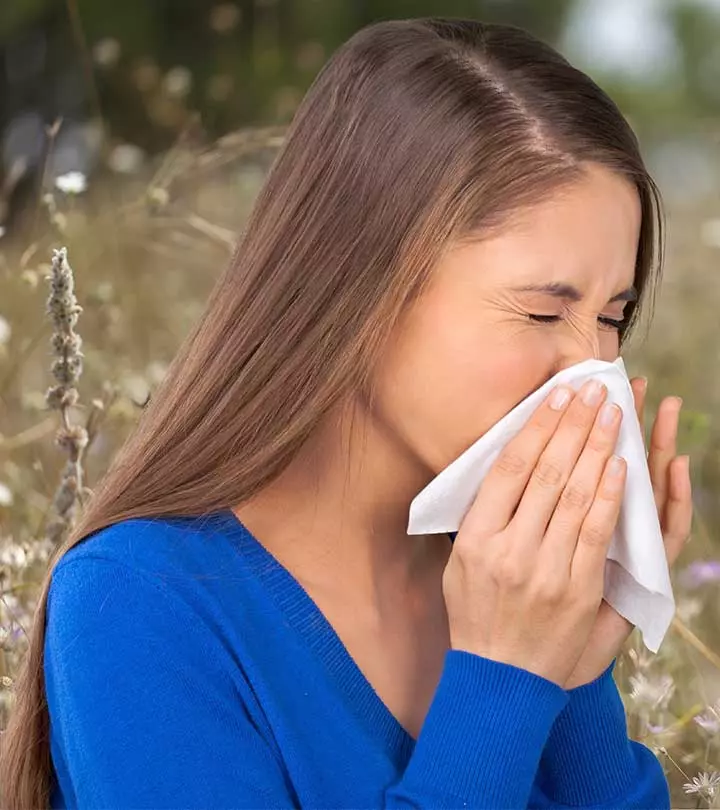

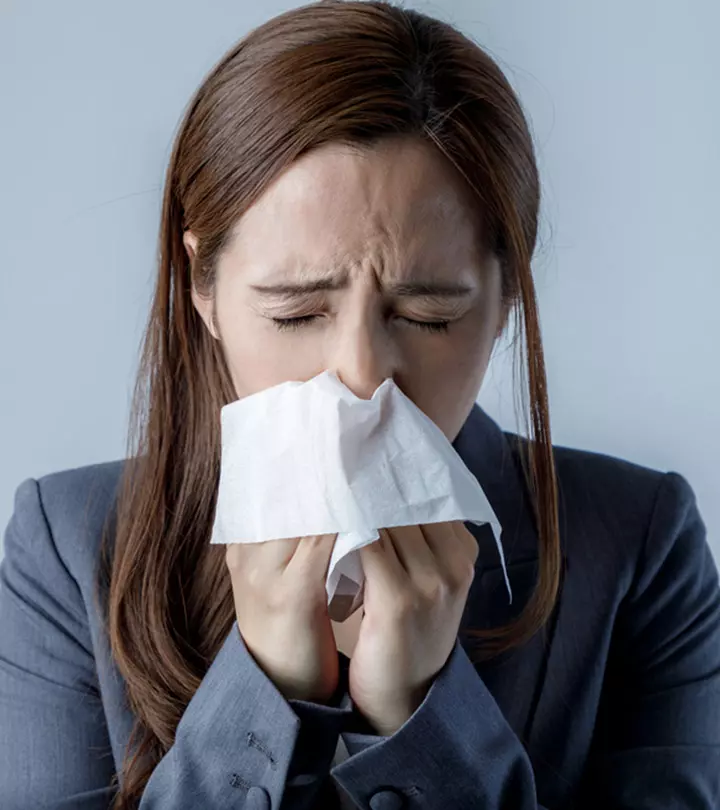
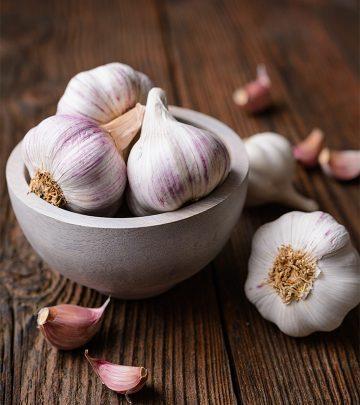
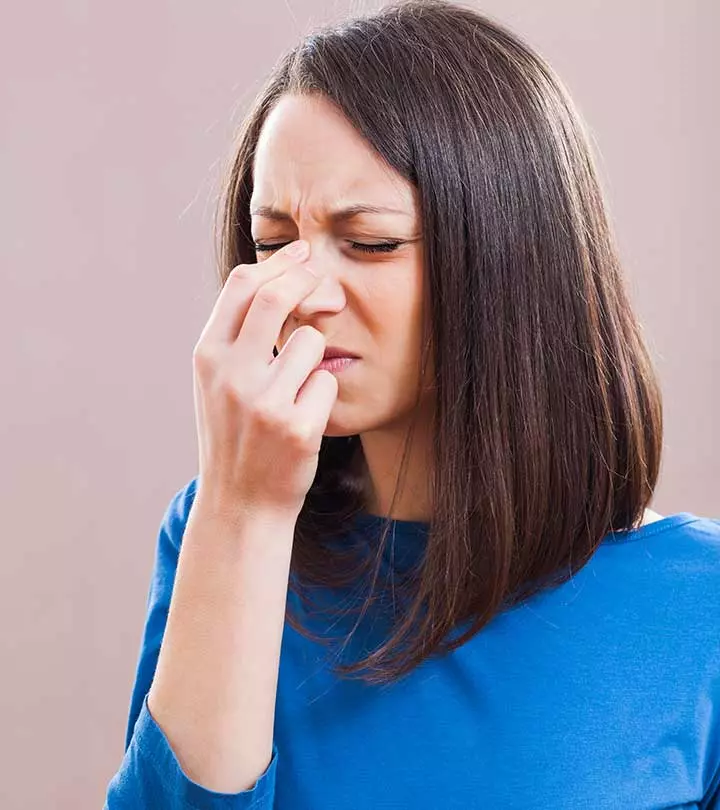


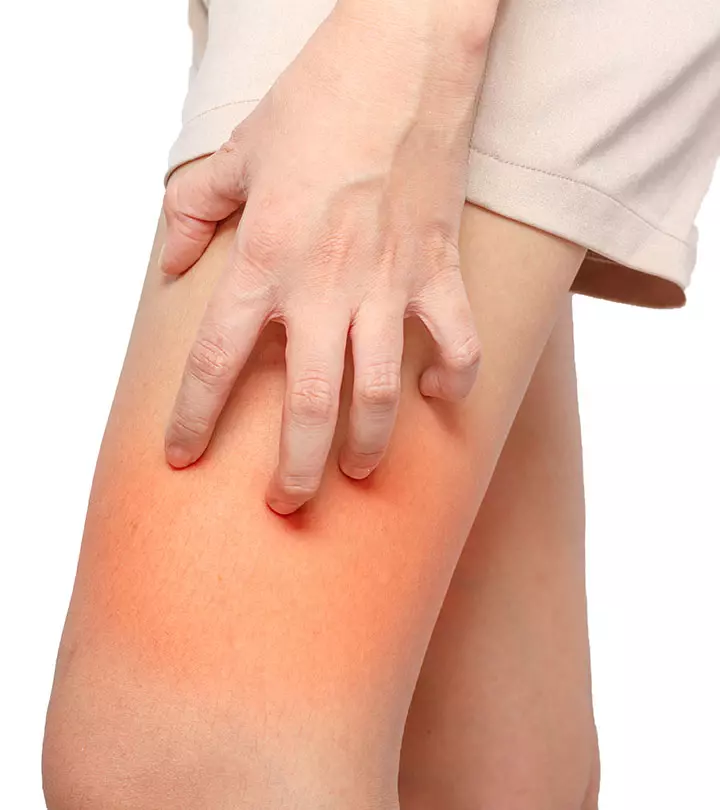





Community Experiences
Join the conversation and become a part of our empowering community! Share your stories, experiences, and insights to connect with other beauty, lifestyle, and health enthusiasts.